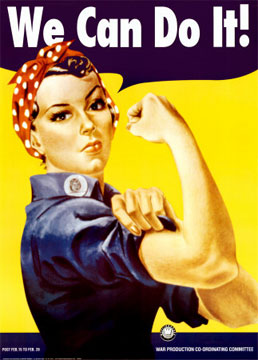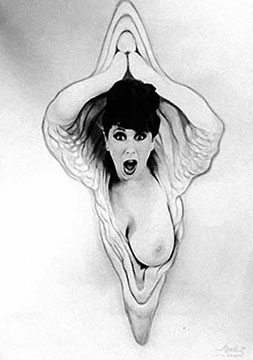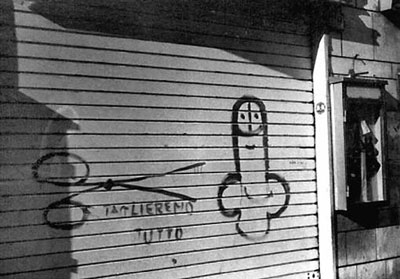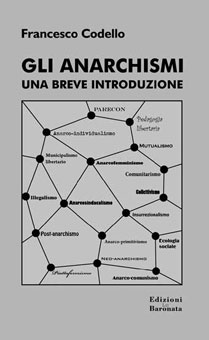 Fiammetta Bonfigli
Fiammetta Bonfigli
For overcoming of veterofemminismo, Possible outcome to libertarian outlets
I decided to join in the debate on the new anarchism, since I believe that the contribution of postfemminismo the discourse on gender and sexuality may be a factor libertarian and "revolutionary" to be considered and valued.
The feminist political discourse has always been, with varying degrees of intensity, based on rigid gender distinction between men and women, the strict distinction in economic, regulatory and social patriarchy justified as violence and subjugation and gender as a relation dominant-dominated. The postfemminismo - thanks to the fundamental work of Judith Butler - and the "Queer theory", have undermined the essential paradigms of traditional feminist theory in a way that, from my point of view, can not but have important effects on the speech and the practice of libertarian feminism.
"Consider the genre as a way of making, performing an incessant, sometimes without knowing it and without a will, does not mean that regulatory activity is mechanical. It is a practice of improvisation in a coercive scenario [...] In addition, gender is not created in isolation, is built either with or for the other "(Butler, 2004).
In this sense, the dichotomy of gender has had the merit of emphasizing the structural disparity to subvert it, but at the same time continues to confirm the paradigm of the opposition between men and women without ever really revolutionize the cultural and political logic. I recently saw an inscription on a wall of Madrid, saying "we are free only sunshine", I immediately thought that those who are content to build their own subjectivity and freedom without the report, el'osmosi comparison with the other, not can not aspire to the overthrow of patriarchy or cultural mutation. Special attention to the deconstruction of the genre, starring as a paradigm of the irreconcilable clash between the sexes, can help a libertarian discourse that takes into account the fluid nature of both the composite and infinitely kind of human sexuality. Re-interpreting sexuality based on the dichotomy heterosexual / homosexual, queer theory reading a variety of sexual possibilities and try to see a number of radical gender practices (Bulldagger, 2006, Werner, 1999). From my point of view, every individual libertarian (man, woman, neither of them) can be positioned at any point along the line from the feminist classic, comes to the radical Queer. It can not be understood apart from how the deconstructive nature of the latter is in itself revolutionary, disruptive and provocative.
 The main criticism that can be made to the Queer theory is not to have a practical impact, result-oriented. My 25 year old libertarian position as a woman is to apply the liberating potential of the theory and practice of erotic aesthetics. Let me explain: if traditional feminism for years has systematically concentrated in the attack against pornography, sensuality and provocative women's views - in some cases understandably - as a means of submission to male desire and eroticism phallocentric (McKinnon) I believe that it is passed by state repression / religious / male in a kind of self repression based on the criminalization of desire and sensuality of the infinite game. At the same time I believe that what women should look to finally feel free erotic imagination is the appropriation and not its suppression.
The main criticism that can be made to the Queer theory is not to have a practical impact, result-oriented. My 25 year old libertarian position as a woman is to apply the liberating potential of the theory and practice of erotic aesthetics. Let me explain: if traditional feminism for years has systematically concentrated in the attack against pornography, sensuality and provocative women's views - in some cases understandably - as a means of submission to male desire and eroticism phallocentric (McKinnon) I believe that it is passed by state repression / religious / male in a kind of self repression based on the criminalization of desire and sensuality of the infinite game. At the same time I believe that what women should look to finally feel free erotic imagination is the appropriation and not its suppression.
A much discussed example that puts into practice is that of post-porn, pornography that is a counter to the predominant model (essentially commodified, and violent men) and is based on different aesthetic, the pioneer of all this was Annie Sprinkle, prostitute and artistic performer. Even today the debate on how we can interpret these experiments remains open. At the same time the sex, its games and its patterns are no longer an instrument of domination can finally be wellness, pleasure and liberation.
Far from wanting to do a praise of hedonism an end in itself, in the wake sessantottino, I believe that the freedom of women in their relationship with other women and men should go to the search for his maximum potential, a happiness which passes the respect of itself and others, trying not to build more models on the paradigmatic style monogamy or polygamy-good image of the militant dedicated only to the sun of (the ever-ubiquitous "woman with balls"). Perhaps the revolution might be this: to leave open the endless possibilities we have, not replacing one paradigm with another, do not try to substitute other models that may be equally repressive, but seek their own specific way of being happy alone and with others releasing more and more our desires, whatever they are: provocation or not, game or no, monogamy, poly-loving existence, experimental or not ... everything has to be a possible practice of our happiness and our freedom.
 Fiammetta Bonfigli
Fiammetta Bonfigli

Andrea Staid
Read anarchists
 Gli anarchismi of Francis Codello is a book that gives a basic introduction to classical ideas and different types of anarchism as occurred throughout history and how they appear today.
Gli anarchismi of Francis Codello is a book that gives a basic introduction to classical ideas and different types of anarchism as occurred throughout history and how they appear today.
Anarchism is pluralist idea. Give some common concepts and essential, the ideas of anarchism are many and the organizational forms are many. The main ones are presented and discussed in this text, which does not pretend, however, assign or distribute judgments of importance or orthodoxy. Only respond to an interest and a personal feeling or because they are considered less well-known author.
Of course, the differences between anarchism, as presented here in brief, are less decided. The various trends are almost never "pure", but intertwine and mingle with each other. "
The anarchist and libertarian (officially born in Saint-Imier 1872), he never wanted to trace a single road against the domain. In other words, anarchists and libertarians as Codello shows us in his book have always been "different" in the course of time with different organizational forms such as, for example, anarcho-communists, socialists, anarchists, individualist anarchists, anarchists, trade unionists, educationalists etc.. etc..
With different forms, but not contradictory, the foundations of anarchist thought and action are characterized by opposition to all forms of domination, not only to essential and traditional political (the state and its institutions), economic (capitalism) and religious (churches), but also those located in areas of life such as relationships between people, partners, family, school, workplace, ecology, etc..
So anarchism has always been multifaceted, and what at first sight can be considered a weakness, while it is also its greatest strength, because it has allowed and allows multiple views of reality in evolution, anarchism is a book that allows us to see anarchism not as a monolithic dogma but as an idea from the many practical and theoretical interpretations.

